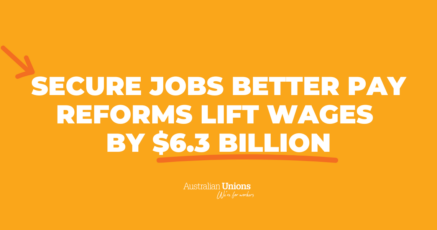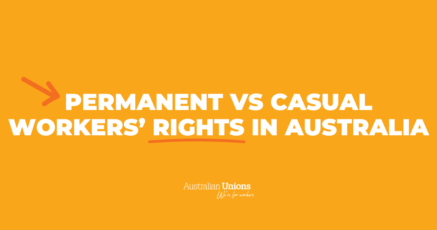You often acutely remember your first job.
Mine was in a chain news agency where I’d proudly presented a one-page printed resume out of the fat stack I carried in my arms.
It paid cash: $8.33 an hour (this is back in 2005). I was 14 years and 9 months old, which in the state of Victoria was smack-bang on legal working age.
I revelled in the independence, the depositing into my newly acquired bank account, the relief and joy of finishing my Friday night shift and running to JB Hi-Fi to buy a CD before it shut, grasping my envelope of cash in my sweaty little papercut hand.
I was so engrossed in finally receiving an income, and too new to being in a workplace to realise a lot of glaringly terrible things that would now appal me.
The owners were tyrannical and nasty. My tasks were at times precarious and physically dangerous. The pay was low but the work I did was the same as older people who were being paid (a little) more. I was on an Award rate though, and that is – technically – legal.
Also, when they were paying me $8.33, they weren’t having to pay an older person that little bit more.
The Australian Retailers’ Association has put forward the solution that there should be a uniform legal working age across all Australian jurisdictions.
What is that age? 13.
They are bemoaning the 40,000+ job vacancies in retail, and this is part of their plan to solve this.
Hiring 13-year-olds is a recipe for exploitative disaster. They would be paid even less than their 15-year-old counterparts and, owing to their age, would have so little voice and agency in their workplaces.
It is difficult enough to stand up to your boss as an adult; harder still if you’re a child and that boss is likely to be significantly older and more experienced.
Now imagine if that “boss” is a corporate giant like McDonald’s. What chance does a kid have?
Undoubtedly the kids most affected will be from lower class backgrounds, widening the divide between rich and poor as these working kids grapple with finding time to study.
It sounds outrageous (yet a little unsurprising) to think that a big employer group would sooner want to employ barely teen-aged children, than offer the adequate pay and decent working conditions that would entice adults. Adults who need to earn a living wage to survive in an increasingly expensive world.
There are so many strategies to be considered that do not involve the exploitation of young people.
Strategies such as companies ending the employment of workers in casual positions with no pathway to permanent roles.
Before we talk about preparing children for the workforce, why don’t we remove some of the obstacles that impede women from entering or re-entering the job market?
The cost of childcare for one day virtually negates an entire day’s income for a working person. Meanwhile Parental Leave is an inadequate amount of time, too low an amount of pay, and covers an outdated a definition of who is deemed a caregiver or parent.
I don’t know about you, but all this women-in-the-home and children-as-cheap-labour conjures images of the early Victorian era, when industry was booming but at the expense of children’s health and safety and a huge disparity between the rich and the poor.
Because that’s what needs to be remembered when we talk about employing children as a so-called bold solution. There is a bold solution, and it’s the ethical one too. Profits are up, productivity is up; wages should be too!
THE BULLETIN
Join us as we delve behind the headlines and see what really matters for young workers.







SHARE:
Resorting to child labour instead of bettering wages and conditions?